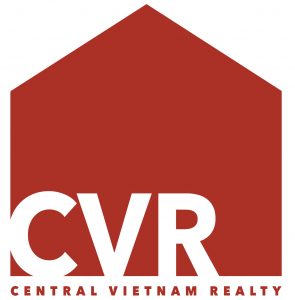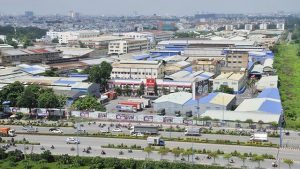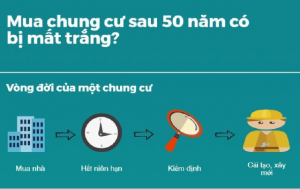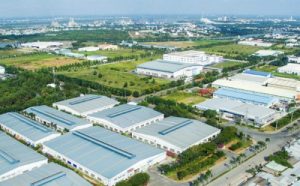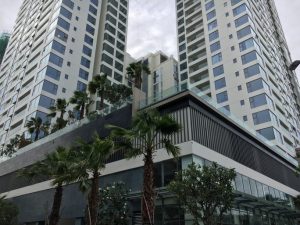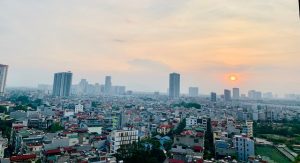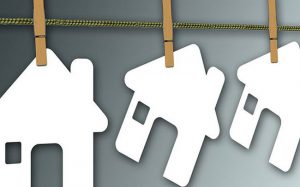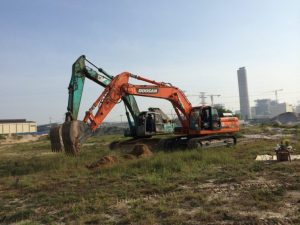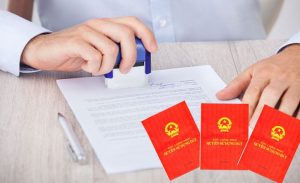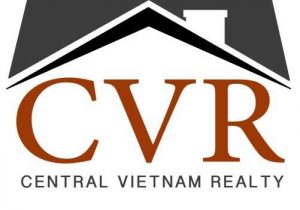Each week we post a news flash with notable articles related to the real estate market in Vietnam. We asked our team to pick the top stories from the past month and we’ve tallied the results. Check out the headlines that made big news in our office below. Have any of the articles we’ve shared impacted you? Is there any important news we’ve missed? We’d love to hear from you!
Over the past several months we’ve been working on improving our brand with a fresh logo (here it is!) and all new website. We’ve redesigned the site from head to toe, with a focus on usability, aesthetic, and ease of access to information. The goal was a clean experience with some fun design elements. We wanted a site that looks beautiful and functions well whether you’re using your mobile phone, tablet, laptop, or desktop. We think this new site hits the mark and we look forward to sharing it with you all soon!
We hope you and your loved ones are staying safe and healthy. The CVR team is working remotely and we’re online to answer your questions any time. Whether buying, selling, renting or opening a business, contact us to talk about your real estate needs today.
Your Friends at Central Vietnam Realty
The Top Real Estate News This Month
- Which real estate segment is still popular despite the epidemic?
According to Savills, most segments of the real estate market are currently witnessing a large decline in transactions. However, the industrial sector is seeing a positive change, assessed as the only sector that promises high and rapid resilience by Savills representative, Simon Smith.Mr. Smith – Head of Research and Consultancy at Savills Asia-Pacific – said: “Industrial real estate is on the radar of many developers. This industry is closely related to the growing e-commerce trend and almost every market in the region lacks modern logistics space.”
While the pandemic has slowed investment in some segments, the industrial sector is growing, especially in Da Nang. Contact our team of experts for information on available industrial properties and other investment opportunities.
Source: http://dantri.com.vn/bat-dong-san/bat-dong-san-thoi-2020-phan-khuc-nao-van-nhon-nhip-bat-chap-dai-dich-20200803070011076.htm - The truth about the 50-year use Condo
Considering the cost to buy a condominium unit, no one expects ownership to have a time limit. So, is it true that condos only have a shelf life of 50 years?Condominium buildings are classified into two main types:Residential apartments: Vietnamese buyers are issued a permanent pink book, while the ownership period for foreigners is 50 years.Officetel serviced apartments: Officetel stands for office & hotel. The 2013 Land Law stipulates that officetel projects are a non-agricultural land use type which is allocated land with a maximum term of 50 years (or up to 70 years in remote/difficult areas). These projects are entitled to lease during the time of land allocation so normally the buyer receives a 50-year lease. So far, no officetel project has been issued a pink book because there are currently no clear legal policies in place.When signing an apartment purchase contract, it’s important to pay attention to the construction permit. The stipulation of the 50-year land use time is the prescribed time for project implementation. Basically, the license will note that the owner will have the right to use the property for a period of 50 years, but this does not mean that the owner can only use it for that amount of time. The effective 2013 Land Law clearly stipulates that domestic and foreign enterprises are only allocated 50 years to prevent investors from “holding” the land for too long.Investors need to have a clear understanding of the duration of ownership and look carefully at the construction of the building which may affect the value of the property. Contact CVR for more information on condo ownership in Vietnam and how we can help you find the best project to invest in.Source: http://dantri.com.vn/ban-doc/su-that-ve-thoi-han-su-dung-chung-cu-la-50-nam-20200728122723381.htm - In the next 6-12 months, Vietnam industrial real estate will benefit from the ‘Japanese wave’
The author, Le Nguyen, starts by informing us that the Japanese government has recently agreed to finance the cost of moving factories out of China. Some companies will relocate factories to Japan, while many others want to locate headquarters in Southeast Asia, especially Vietnam.57 Japanese companies will receive a total of 57.4 billion Yen (536 million USD) in subsidies from the Government and the Ministry of Economy, Trade, and Industry of Japan. According to Colliers International report, as of the end of June, the average industrial real estate rental price reached 151 USD / m2 / period in Hanoi, up 9%. In Ho Chi Minh City, the average rental price for industrial land increased to 162 USD / m2 / period, 8% higher than the same period last year.The average rental rate continues to increase as demand continues to rise while supply remains constant.
More clients looking for industrial space post Covid-19 coupled with increased vacancies will hopefully lead to an opportunity for industrial real estate to grow stronger than ever once the pandemic begins to settle in Vietnam. Contact our team of experts for information on available industrial properties and other investment opportunities.
Source: http://vietnamfinance.vn/6-12-thang-toi-bds-cong-nghiep-viet-nam-se-huong-loi-tu-lan-song-nhat-ban-20180504224242249.htm - How many properties have foreigners purchased in Vietnam?
The HCM Real Estate Association (HoREA) provided preliminary statistics on the sale of houses to foreign organizations and individuals over the past 5 years (2015-2020) by 17 major real estate corporations. A total of 12,335 houses and apartments (in development projects) were sold to foreign organizations and employees. In Ho Chi Minh City in particular, 10,020 houses and apartments were sold to foreigners, accounting for 81.2% of sales.“Assuming the above 17 groups account for around 70% – 80% of the market share of houses sold to foreign individuals, it is possible to estimate the number of houses that foreigners have bought in the past 5 years. The figures in the 10-year national real estate market report of the Ministry of Construction show 5,000 housing projects with 3,774 million houses (for the whole country, there are about 14,800 – 16,000 units.) On average, about 787,000 houses can be developed every 5 years. Compared with the number of houses that foreigners bought in the past 5 years (around 16,000), foreign ownership accounts for only 2% of total houses “- Mr. Le Hoang Chau, Chairman of HoREA, commented.From this analysis, HoREA concludes that the market has not had a “wave” of foreign buyers in Vietnam over the past 5 years. In fact, only projects in urban or residential areas, and high-end, modern apartment buildings with full services, utilities, security and safety are attracting foreign buyers.Developers of housing projects have strictly complied with the 30% “ceiling” on the number of apartments allowed to be sold to foreigners. Some projects have already reached that 30% limit, such as Gateway Thao Dien, Nassim, and Thao Dien Pearl to name a few.
At CVR we specialize in working with foreign buyers and sellers. Our property experts point out that although we don’t have an exact figure for foreigners who bought property in Da Nang, even 5% of the total number of transactions is a great percentage for agencies that take care of foreign buyers. Interested in learning about ownership opportunities in Central Vietnam? Contact the CVR team today!Source: http://nld.com.vn/kinh-te/nguoi-nuoc-ngoai-da-mua-bao-nhieu-nha-o-tai-viet-nam-20200812153957136.htm - How the 2nd wave of Covid-19 affects the real estate market
The second wave of Covid-19 has had an immediate impact on the real estate market. In the North, there were no new projects launched in July 2020. In Central Vietnam, there’s only one project to be introduced with 150 products (Rosa Riverside in Hoi An). In the South, there are only a few projects in HCM city and surrounding cities.Since the second wave, the interest in real estate has dropped 7% in Vietnam as a whole, and 20% in Da Nang. There was a 6% increase in leasing in the South, but with a decrease in tourism, the number of vacant accommodations and the number of advertisements increases. According to experts, the price of property in Da Nang will level off from now until the end of 2020, and in some cases will drop.
The 2nd wave of Covid-19 hit the economy hard and it will take time to recover to the level it was at prior to the pandemic. As the real estate market changes, CVR is adjusting our business strategies to adapt to new circumstances. We are ready to find the right investment at the right time for you!
Source: http://dantri.com.vn/bat-dong-san/lan-song-covid-19-thu-hai-ap-den-gia-ban-bat-dong-san-ra-sao-20200814073609116.htm - During Covid-19, banks boost sales of mortgaged assets to resolve debts
As the author points out, many banks are selling real estate assets worth hundreds of billions of VND. BIDV published information on its official website regarding an asset valuation for 21 land use rights with an area of more than 100 m² to more than 6,000 m². Agribank is actively selling valuable assets from customers who cannot pay their debts. The Oceanbank website shows that the bank is selling a lot of unpayable debts as well.
We believe this information is imperative to investors as there are opportunities to find properties at great prices. Contact the CVR team to learn about available investments today.
Source: http://cafef.vn/mua-covid-19-ngan-hang-tich-cuc-rao-ban-bat-dong-san-de-thu-hoi-no-202008200908362.chn - 5 tips for choosing land to build convenient, economical and low-risk houses
1) Check the legal documents: Distinguish if the land is residential or agricultural and whether that land is subject to land clearance or planning for any projects.
2) Consider soil quality: When choosing land to build a house, you should look for soil that is fleshy, clay or sandy, avoiding loose soil, weak stratigraphic soil, or soil in an area prone to flooding, landslides and subsidence, or near groundwater.
3) When buying land in an alley: When choosing to buy land in an alley, pay attention to the width of the alley. Do not choose an alley that is too small, it will cause difficulties and higher costs later in the home building process.
4) Do not buy land that is too small: Land area smaller than 30m2 will be inconvenient to design and build a home that meets all the needs of a family.5) When buying land with an old house attached: If you buy land with an old house attached, look for level 4 houses with separate walls.Considering building a home? CVR has expert local knowledge and understands the new construction market in Da Nang. We can help you find the perfect piece of land to build the home of your dreams. Contact us today for more information on land deals in and around Da Nang.Source: http://batdongsan.com.vn/kien-thuc-xay-dung/5-kinh-nghiem-chon-dat-de-xay-nha-thuan-loi-tiet-kiem-it-rui-ro-ar104828 - 2020 Red Book Procedures
1) According to the latest land law, Red book procedures are as follows:-To be granted a red book, the land parcel must first meet all the conditions under the 2013 Land Law, Decree 43/2014 / ND-CP and Decree 01/2017 / ND-CP.– Regarding procedures for receiving a red book, the following documents are required: an application form for a red book, papers proving land use rights, documents showing the completion of financial obligations for the land parcel (receipts of land use levy, land tax …), papers for exemption or reduction of financial obligations to the land (if any).– Submit the application and additional documents at the branch of the land registration office in the district, town, city, or at the People’s Committee of the commune where the land is located. When conducting the red book procedure according to the latest land law , buyers will be required to pay taxes and fees.2) The process to change the name of property owner in the red book in 2020:– Transferor (seller) and transferee (buyer) go to a notary office to make a land transfer contract.– Prepare documents to change the title, including documents such as: Certificate of land use rights, identity card and household registration book of the seller and buyer, personal income tax declaration and fees.– Submit the above dossier at the land registration office where the land is located according to regulations.– Receive the red book that has been transferred.The CVR team will guide you through the process of buying, selling, changing ownership or donating real estate. We understand the legal provisions involved in a real estate transaction and work hard to ensure these transactions are carried out in accordance with the law.Source: http://batdongsan.com.vn/trinh-tu-thu-tuc/luat-dat-dai-moi-nhat-co-diem-gi-dang-luu-y-quy-trinh-sang-ten-so-do-nam-2020-ar104863
As always, CVR is at your service and happy to provide help anyway we can!

